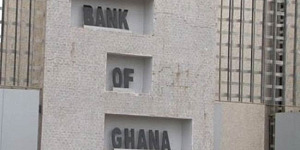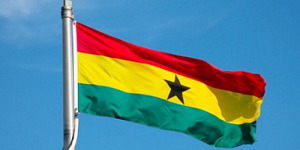Ghana's central bank left its policy rate steady at 26.0 percent, saying there is need "to maintain the current monetary policy stance which together with fiscal consolidation would help bring inflation further down."
The Bank of Ghana, which raised its rate by 500 basis points in 2015 to curb inflation from a rapid depreciation of the cedi's exchange rate, added that the risks to the outlook for inflation and economic growth were considered to be balanced.
Ghana's inflation rate eased to 18.5 percent in February from 19 percent in January, pulled down by lower non-food inflation and a more stable exchange rate in recent months. Core inflation, which excludes energy and utilities, has been trending downward since December.
The central bank expects inflation to peak in the first quarter and then slowly decelerate towards its target band by mid-2017, the same forecast as in January.
The central bank, which targets inflation of 8.0 percent, plus/minus 2 percentage points, added that upside risks to the outlook come from second round effects of higher transportation costs and tight external financing conditions.
Inflation expectations remain high, the bank said, driving up by higher utility tariffs and petroleum prices but "there is no clear evidence of a further deterioration in inflation expectations in the near term."
Since August last year, the exchange of the cedi has been relatively stable, reflecting the bank's rate hikes, improved liquidity on the foreign exchange market and renewed investor interest in debt instruments, the bank said.
As of March 17, the cedi was down 1.4 percent this year against the U.S. dollar compared with a depreciation of 11.2 percent in the same period last year. The cedi was quoted around 3.85 to the dollar today as compared with 3.815 at the start of the year.
The process of cutting the government budget deficit remains on track, the bank said, adding that preliminary data shows a deficit of 7.1 percent of Gross Domestic Product in 2015 compared with a deficit of 10.2 percent in 2014.
"Continued commitment to the budget implementation coupled with the tight monetary policy stance is expected to offset some of the inflation pressures through weaker aggregate demand," the central bank said, adding that changes in crude oil prices and tight external financial may pose risks to the budget in terms of lower oil revenue and financing of the deficit.





















































